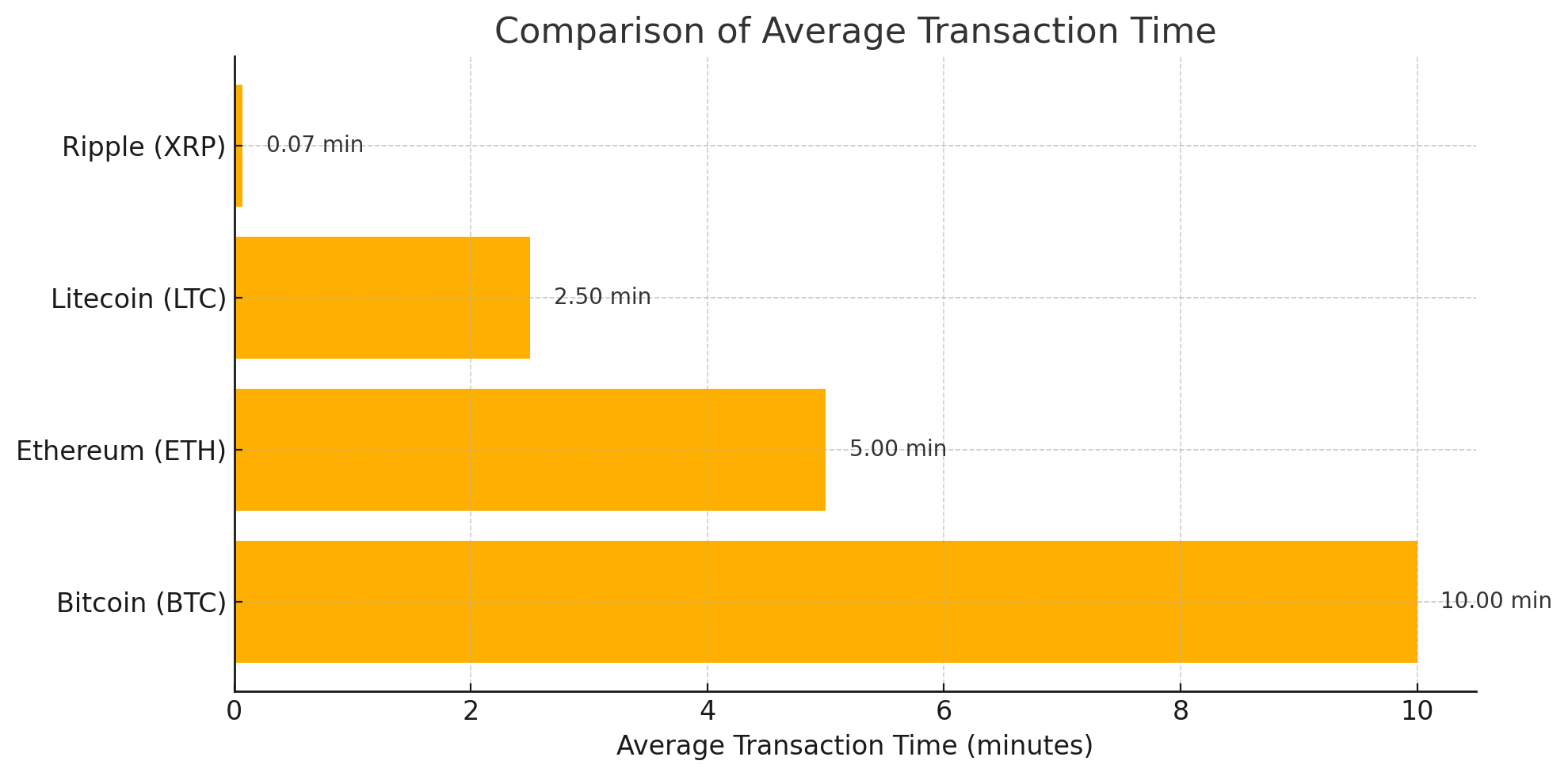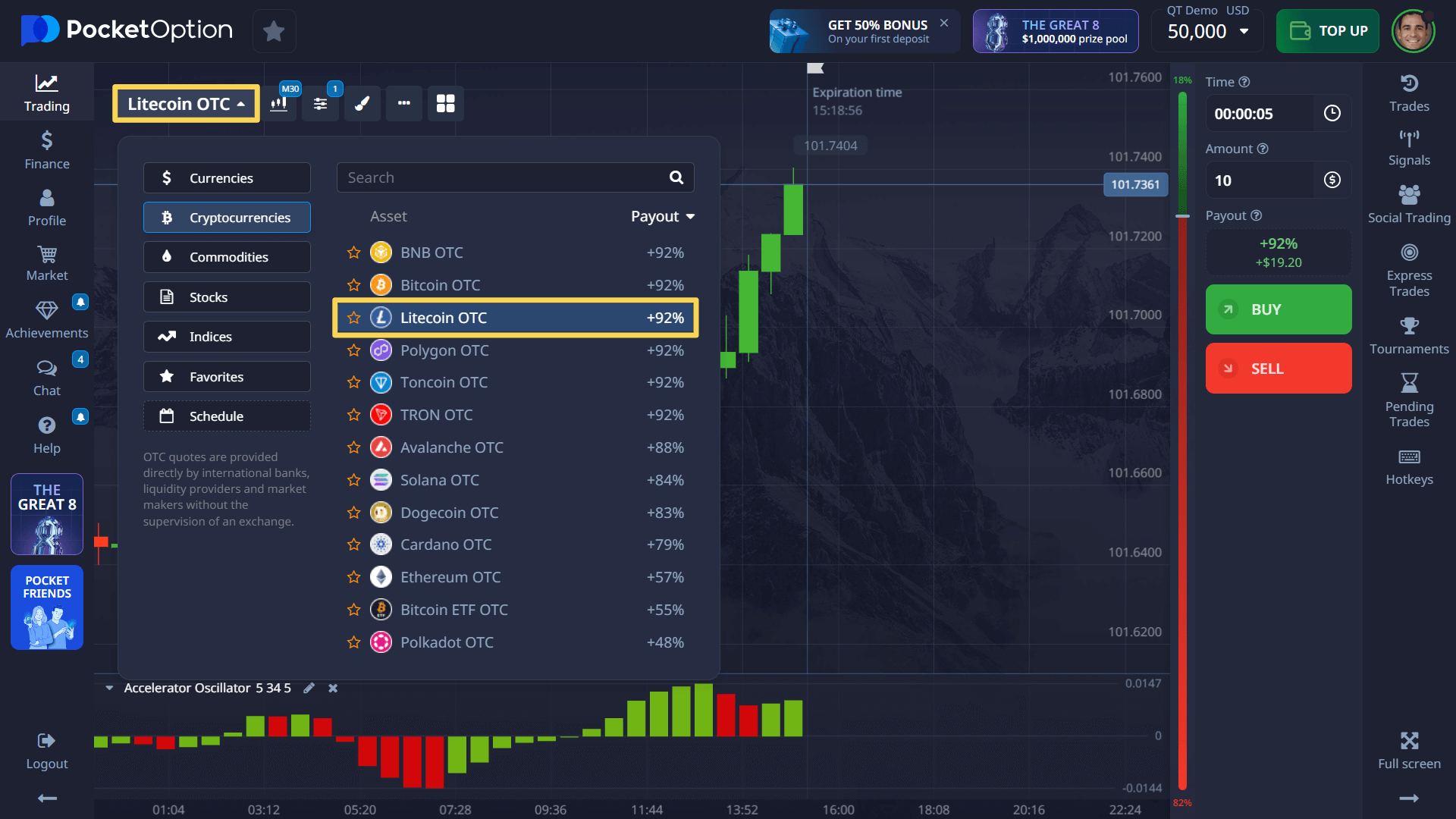- Get your Transaction ID (TXID): Provided after initiating the transfer.
- Visit a Litecoin block explorer: E.g., blockchair.com/litecoin or litecoinblockexplorer.net.
- Paste your TXID: Search to check status, block confirmations, and time.
- Confirm depth: At least 6 confirmations are generally considered secure.
How Long Does Litecoin Take to Send: A Comprehensive Analysis

How long does Litecoin take to send? This article explains average transaction times, factors affecting speed, and tips for faster transfers on platforms like Pocket Option.
What Is the Average Litecoin Transaction Time?
Litecoin, known as the “silver to Bitcoin’s gold,” features a default average block time of 2.5 minutes. But how long do Litecoin transactions take in real life? Most transfers are confirmed within 5–10 minutes, but speed can vary depending on several factors. Compared to Bitcoin’s 10-minute block time, LTC transaction time is significantly faster.
Key Factors Affecting LTC Transaction Time
| Factor | Impact on LTC Transaction Time |
|---|---|
| Network Congestion | Higher congestion = Slower transfers |
| Transaction Fees | Higher fees = Faster confirmations |
| Block Size & Difficulty | Larger blocks/difficulty = Slower processing |
| Mining Power | More mining power = Faster confirmations |
Litecoin’s speed advantage doesn’t mean delays never occur. If you’re wondering how long does LTC take to transfer during peak periods — it can extend to 30+ minutes without optimal settings.
How to Verify LTC Transactions: Step-by-Step
How do I verify LTC transactions? Follow this guide:
This helps track how long LTC takes to transfer and ensures your funds are en route.
Popular Wallets and Platforms for LTC Transfers
Understanding where you store and move your Litecoin also influences experience and expectations. Some of the most widely used platforms for LTC include:
- Exodus Wallet: User-friendly desktop and mobile wallet with real-time tracking.
- Trust Wallet: A popular multi-currency mobile wallet supporting LTC.
- Ledger: Hardware wallet with secure transaction initiation.
- Binance, Kraken, Coinbase: Major exchanges where LTC transfers are usually completed within 5–15 minutes, depending on fees and network load.
These services also provide transparent fee controls and tracking tools.

Pocket Option: Trading with Litecoin
While Pocket Option is not a wallet or exchange, it supports Litecoin as a payment method. Users can deposit or withdraw funds using LTC, offering flexibility for traders looking for fast blockchain-based transfers.
Once you log in, go to Finance → Deposit/Withdraw and choose Litecoin. You’ll see:
- Your unique LTC wallet address
- Minimum deposit amount
- Real-time confirmation status
To optimize transaction speed:
- Monitor live network data inside your Pocket Option account
- Set higher custom fees when time-sensitive
- Use off-peak hours to benefit from faster average block time

Litecoin vs. Other Coins: Which Is Faster?
| Cryptocurrency | Average Transaction Time |
|---|---|
| Bitcoin (BTC) | 10 minutes |
| Ethereum (ETH) | 5 minutes |
| Litecoin (LTC) | 2.5 minutes |
| Ripple (XRP) | 4 seconds |
While Litecoin transaction time is faster than BTC and ETH, it trails XRP. Still, LTC offers a great speed-security balance.
Real-World Example
Imagine a trader on Pocket Option spotting a market surge. They transfer LTC to fund their account — if sent during low congestion and with adequate fees, the funds arrive in under 5 minutes, allowing them to act fast.
Pros and Cons of Using Litecoin for Trading
| Pros | Cons |
|---|---|
| Fast average block time | Congestion delays during peaks |
| Lower transaction fees | Speed affected by miner activity |
| Widely accepted for trading | Not the fastest vs. newer coins |
How to Speed Up a Stuck Litecoin Transaction
Even though Litecoin is known for its fast transaction times, delays can still occur. If you’re experiencing a stuck or slow transfer, here’s what you need to know and how to potentially resolve it.
Common Reasons for Delayed LTC Transactions
- Low transaction fees: If your fee is too low, miners may deprioritize your transaction.
- Network congestion: High activity on the Litecoin blockchain can lead to slower processing.
- Wallet or exchange delays: Sometimes the platform you use may queue transactions internally before broadcasting them.
How to Detect a Stuck Transaction
- Use a block explorer (like blockchair.com or litecoinblockexplorer.net) and search for your TXID.
- If your transaction has 0 confirmations after a prolonged period (15–30 minutes or more), it may be stuck.
Ways to Speed It Up
- Use Replace-by-Fee (RBF): Some wallets support RBF, allowing you to resend the transaction with a higher fee.
- Accelerator services: Some mining pools or services offer transaction acceleration (e.g., ViaBTC), though availability for Litecoin is limited.
- Contact the platform: If you initiated the transfer from an exchange or custodial wallet, their support may help by rebroadcasting or prioritizing the transaction.
Tip for the Future
To avoid stuck transactions, always check the recommended fee rate and adjust accordingly — especially during peak times. Wallets like Exodus and Trust Wallet often suggest optimal fees based on network conditions.

FAQ
How can I ensure my Litecoin transactions are processed quickly?
To expedite your Litecoin transactions, consider transacting during times of low network congestion and opt to pay higher transaction fees for prioritization.
Why might a Litecoin transaction take longer than expected?
A transaction may take longer due to high network congestion, low transaction fees, or increased block size and mining difficulty.
How does Litecoin's transaction speed compare to Bitcoin's?
Litecoin transactions are significantly faster than Bitcoin's, taking about 2.5 minutes compared to Bitcoin's 10 minutes. This makes Litecoin a more efficient option for quick trading.
Is Litecoin a good choice for everyday transactions?
Yes, due to its faster transaction times and lower fees compared to Bitcoin, Litecoin is well-suited for everyday transactions. However, network congestion can still affect speed, so it's important to plan accordingly.
Why is my LTC transaction taking so long?
It could be due to network congestion, low transaction fees, or delays at the exchange or wallet service. Check your TXID via a block explorer to confirm status.
How long does it take to withdraw from Litecoin?
Most Litecoin withdrawals take between 5–20 minutes, depending on the platform, transaction fees, and network traffic. On Pocket Option, LTC withdrawals typically complete in 5–15 minutes under normal network conditions.
How do I verify LTC transactions?
Use a block explorer with your transaction ID to check status and number of confirmations.
What is Litecoin’s average block time?
2.5 minutes — faster than most proof-of-work cryptocurrencies.
How long do Litecoin transactions take on average?
Most transactions are completed within 5–10 minutes under normal network conditions.
CONCLUSION
Litecoin stands out as a fast, cost-efficient, and widely supported cryptocurrency for both trading and personal transfers. With its consistent average block time of 2.5 minutes and relatively short Litecoin transaction time, it’s ideal for users who value speed without sacrificing decentralization. Whether you're sending funds to a wallet like Exodus, using an exchange like Binance, or depositing to platforms such as Pocket Option, understanding how long LTC takes to transfer helps you make faster, more confident financial decisions. To trade or fund your account with Litecoin, make sure to monitor the network load, set appropriate fees, and use platforms that offer transparent transaction tracking.
Start trading